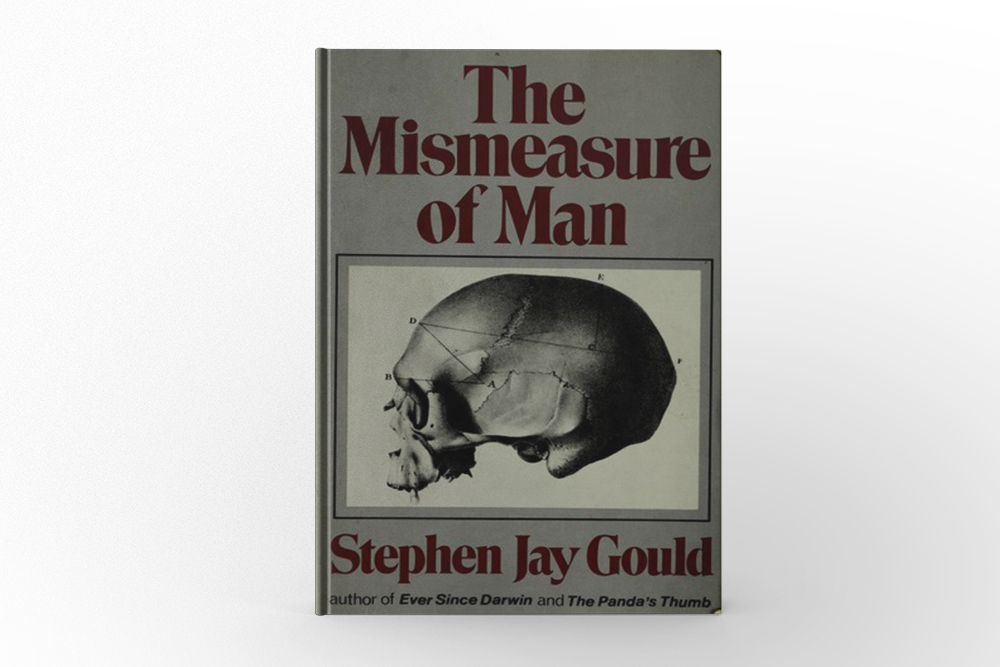“The Mismeasure of Man by Stephen Jay Gould” is a seminal work that critically examines the history and misuse of intelligence testing. This book delves into the flawed assumptions and methodologies that have perpetuated the myth of biological determinism. Gould, a renowned paleontologist and evolutionary biologist, meticulously deconstructs the scientific racism embedded in the measurement of human intelligence. In this article, we will explore the book’s content, themes, and the author’s background, providing a comprehensive overview of why “The Mismeasure of Man” remains a crucial read for understanding the intersection of science and social justice.
Author’s Background
Stephen Jay Gould was a prolific writer and one of the most influential scientists of the 20th century. Born in 1941 in New York City, Gould’s early fascination with paleontology led him to a distinguished career in evolutionary biology. He earned his Ph.D. from Columbia University and spent most of his professional life at Harvard University, where he was a professor of geology and zoology. Gould’s work extended beyond academia; he was a passionate advocate for science education and a vocal critic of pseudoscience. His numerous books and essays, including “The Mismeasure of Man,” reflect his commitment to debunking scientific myths and promoting a more nuanced understanding of human diversity.
In-Depth Summary
“The Mismeasure of Man by Stephen Jay Gould” is divided into two main parts, each addressing different aspects of the history and misuse of intelligence measurement.
Part One: The History of Craniometry
- Craniometry and Racial Ranking: Gould begins by examining the 19th-century practice of craniometry, which involved measuring skull sizes to determine intellectual capacity. He critiques the work of prominent scientists like Samuel George Morton and Paul Broca, who used biased data to support their preconceived notions of racial superiority. Gould meticulously reanalyzes their data, demonstrating that their conclusions were influenced by cultural and racial biases rather than objective science.
- The Fallacy of Biological Determinism: This section delves into the broader implications of craniometry and the belief in biological determinism—the idea that social and economic differences among human groups are rooted in innate biological traits. Gould argues that this perspective ignores the impact of environmental and social factors, perpetuating harmful stereotypes and justifying inequality.
Part Two: The Rise of Intelligence Testing
- The Origins of IQ Testing: Gould traces the development of intelligence testing from its inception by Alfred Binet in the early 20th century. Binet’s original intention was to identify children who needed educational assistance, but his work was later co-opted by others to support the notion of fixed, inheritable intelligence.
- The Misuse of IQ Tests: This section critiques the work of psychologists like H.H. Goddard, L.M. Terman, and R.M. Yerkes, who used IQ tests to label individuals and groups as inherently inferior. Gould highlights the social and political consequences of this misuse, including the eugenics movement and restrictive immigration policies.
- The Bell Curve Controversy: Gould addresses the resurgence of biological determinism in the late 20th century, particularly through the controversial book “The Bell Curve” by Richard Herrnstein and Charles Murray. He dismantles their arguments, emphasizing the flawed assumptions and statistical errors that underpin their conclusions.
Themes and Insights
“The Mismeasure of Man by Stephen Jay Gould” explores several profound themes:
- Scientific Racism: Gould exposes the ways in which scientific methods have been manipulated to support racist ideologies. He argues that biases in data collection and interpretation have perpetuated the myth of racial superiority.
- The Fallacy of Biological Determinism: The book challenges the notion that intelligence and other human traits are fixed and biologically determined. Gould emphasizes the role of environmental and social factors in shaping human abilities and behaviors.
- The Ethics of Science: Gould calls for greater ethical responsibility in scientific research. He argues that scientists must be aware of their own biases and the potential social implications of their work.
- The Power of Critical Thinking: The book underscores the importance of critical thinking and skepticism in evaluating scientific claims. Gould encourages readers to question assumptions and seek out multiple perspectives.
Recommendation
“The Mismeasure of Man by Stephen Jay Gould” is a must-read for anyone interested in the history of science, psychology, and social justice. Its thorough analysis and compelling arguments make it an essential resource for students, educators, and professionals in these fields. The book’s accessible writing style and engaging narrative ensure that it is suitable for a wide audience, including those new to the subject matter. Gould’s work remains relevant today, offering valuable insights into the ongoing debates about intelligence, race, and inequality.
Conclusion
In “The Mismeasure of Man by Stephen Jay Gould,” readers are invited to critically examine the history and misuse of intelligence testing. Gould’s meticulous research and powerful arguments challenge the foundations of scientific racism and biological determinism. This book not only provides a comprehensive overview of the flaws in intelligence measurement but also inspires readers to advocate for a more just and equitable society. “The Mismeasure of Man” is a timeless work that continues to resonate with readers, offering a profound understanding of the intersection of science and social justice.
